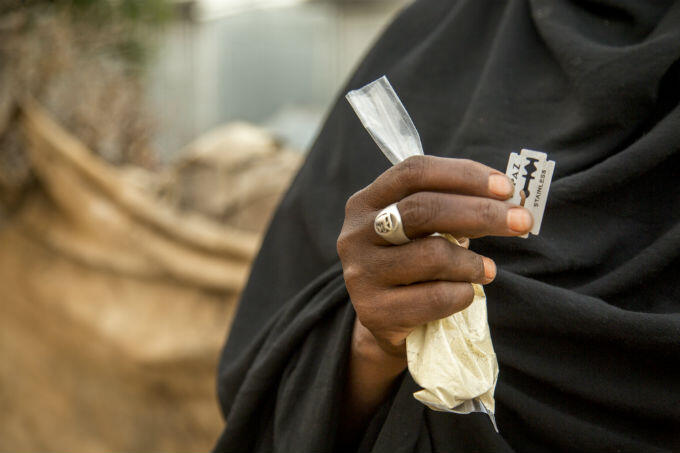Somalia’s Attorney General Ahmed Ali Dahir announced on 25 July the country’s first ever prosecution against female genital mutilation (FGM) following the death of a 10-year-old girl Deeqa Dahir Nuur who passed away in July of severe bleeding after undergoing FGM.
“We are going to prosecute on this straight away. Prosecuting this case will not be delayed. We can do it under the existing penal codes in Somalia,” Dahir told journalists.
The announcement was made at the end of a media academy which brought together 45 of the most prominent religious leaders, journalists and civil society actors from five Somali states.
UNFPA Somalia, together with UNICEF Somalia supported, the media academy which was preceded by a high level conference for Somali leaders and influencers to reflect the successes and challenge to collectively end all forms of FGM at state and federal levels in Somalia. UNFPA, jointly with UNICEF, leads the largest global programme to accelerate the abandonment of FGM. The programme currently focuses on 17 African countries and also supports regional and global initiatives.
Representative for UNFPA Somalia Nikolai Botev decried the suffering that continue to hound girls and women subjected to FGM.
“We are extremely saddened by the death Deeqa Dahir Nuur. FGM is also a factor in the very high maternal mortality that Somalia continues to experience. FGM is thus not just a human rights issue but also a human lives issue. Hence our commitment to zero tolerance of FGM,” said Botev.
It is hoped that the prosecution will help demystify myths in Somalia that FGM is necessary and that the court case will bring attention to government’s commitment to a zero-tolerance policy to FGM.
Mohamed Abdi UNFPA GBV Project Coordinator explained that Somalia has the highest prevalence rate of FGM in the world at 98 percent.
“The consequences of FGM also have social implications as many young women stop going to school after the procedure has occurred which damages not just their own future, the procedure also has a long lasting negative health effects such as fatality during childbirth, long term pain and infections,” said Abdi.
Ifrah Foundation and Global Media Campaign to End FGM (GMC) organized the media academy to share and learn media strategies to amplify on-going end FGM efforts and creating creative educative programmes and messaging at all levels.
This was the first time in the country’s history that Somalia’s religious and political leaders gathered to discuss FGM together with local, national and international bodies to share the challenges, the progress and the hopes for work tackling gender based violence in Somalia.
Ifrah Ahmed, founder of the Ifrah Foundation said: “we look forward to the determination of the prosecution of the case of 10-year-old Deeqa Dahir Nuur. It is for everyone to take action to protect Somalia girls,” said Ahmed wo is an devoted campaigner against FGM adding: “it is time we, the Somali people, came together to protect our girls.”
The conference and the media academy also exploree the successes and challenges of tackling FGM from local, state and federal levels; particularly pushing for an FGM bill drafted into the new constitution; which hopes to be established by the end of the year. Both the bill and the constitution represent a step towards sovereignty for Somalia and the confirmation that human rights matter for all Somalis, no matter their gender.
--------------------------------------------------------
For more information please contact UNFPA Somalia Communications, Partnerships & Donor Relations Specialist Pilirani Semu-Banda on e-mail: semu-banda@unfpa.org


